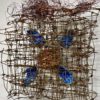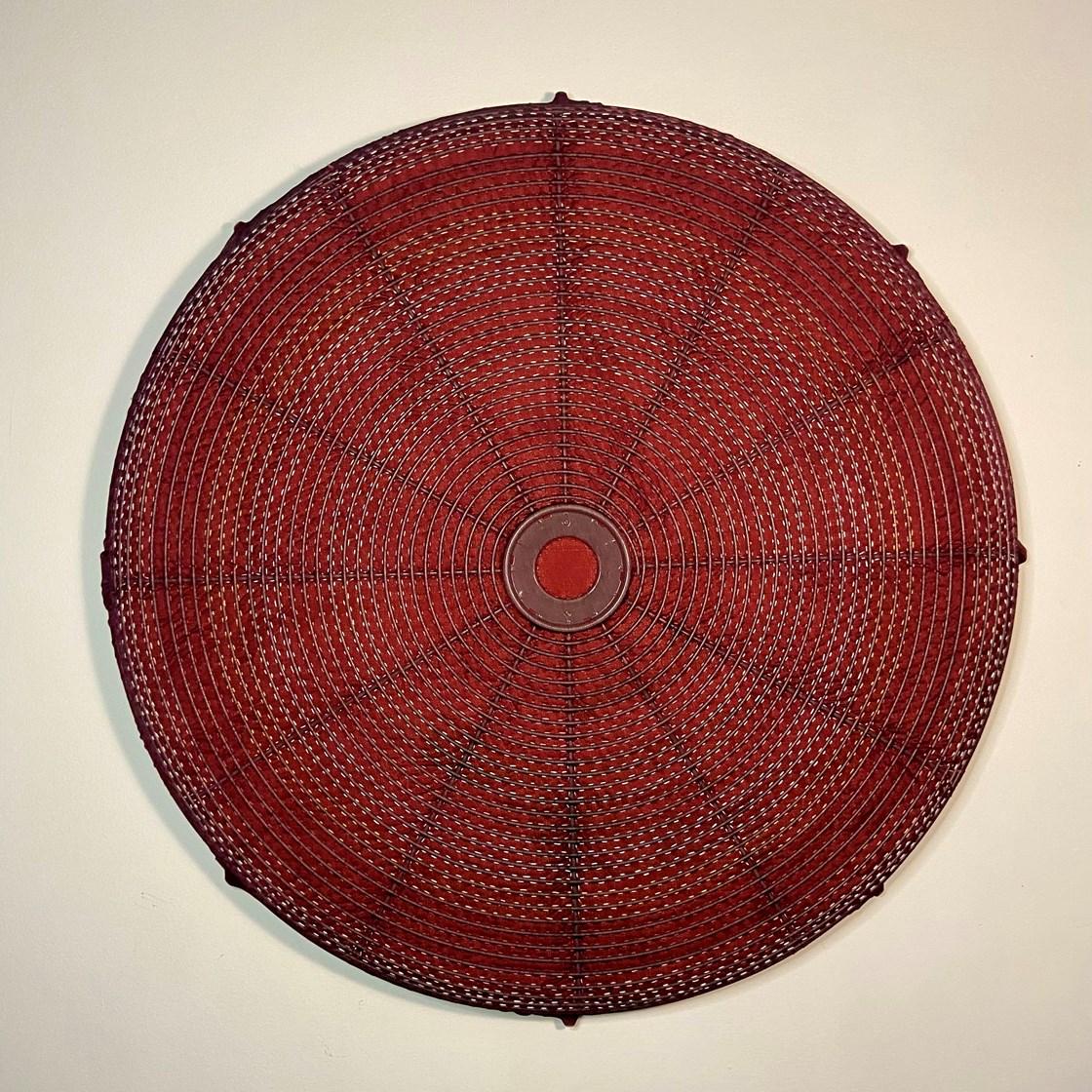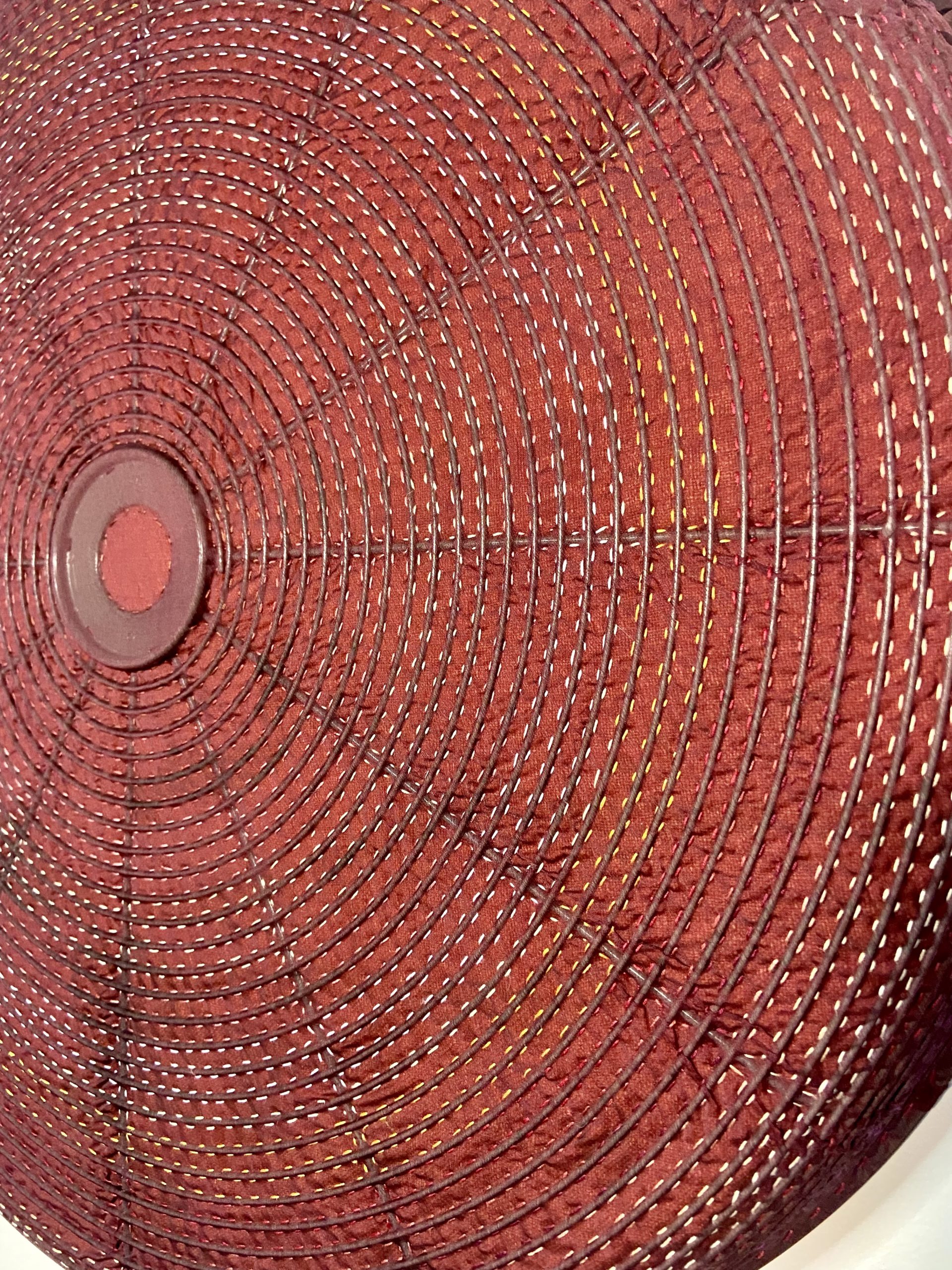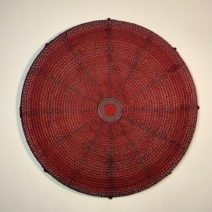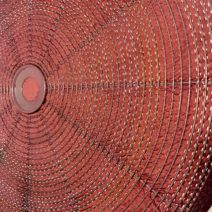ARTIST STATEMENT
The central themes in my work often pivot on the tension between labor, and impermanence. In my recent work, I have begun with collecting broken tech and consumer goods from the recent past, including but not limited to boom boxes, landline phones, digital cameras, calculators, digital watches, and fans. These items were not made to last, and are not designed to be easily repaired or have been replaced by smartphones and tablets. I then dismantled and quilt these objects by hand between layers of fabric, cocooning them in prismatic textiles. These artworks resemble excavated fossil tablets in all-over composition and texture or abstracted iconography.
When they were made, these advancements were mass-produced, and like all material cultures, reflect our desires. Built by many hands, they are held by hands once more to be dismantled and shrouded. I’m interested in these contrasting labor, mass automation, and slow stitch. I think of this practice as preservation, and acknowledgment of these desires, the physical manifestation of which has become obsolete.
ABOUT THE ARTIST
Millicent Kennedy’s art practice collaborates with materials and time through performance, fiber, and print. The themes explored in her work often pivot on the tension between labor, and impermanence. Kennedy serves as the Curator of Exhibitions at the Fine Arts Center Gallery in Northeastern Illinois University and has previously served as the Gallery Director at Rockford University, She currently teaches classes and workshops in and around Chicago, where her studio is located.
She received her Bachelor’s Degree from Northeastern Illinois University and her MFA from Northern Illinois University where she was awarded the Helen Merritt Fellowship. She’s received solo exhibitions from Belong Gallery, SXU Art Gallery, Roman Susan and Parlour and Ramp, as well as site-specific installations with Terrain Exhibitions Biennial, and Purple Window Gallery. She has received artist residencies in Chicago, Mississippi, Michigan and Springfield.
© Millicent Kennedy

